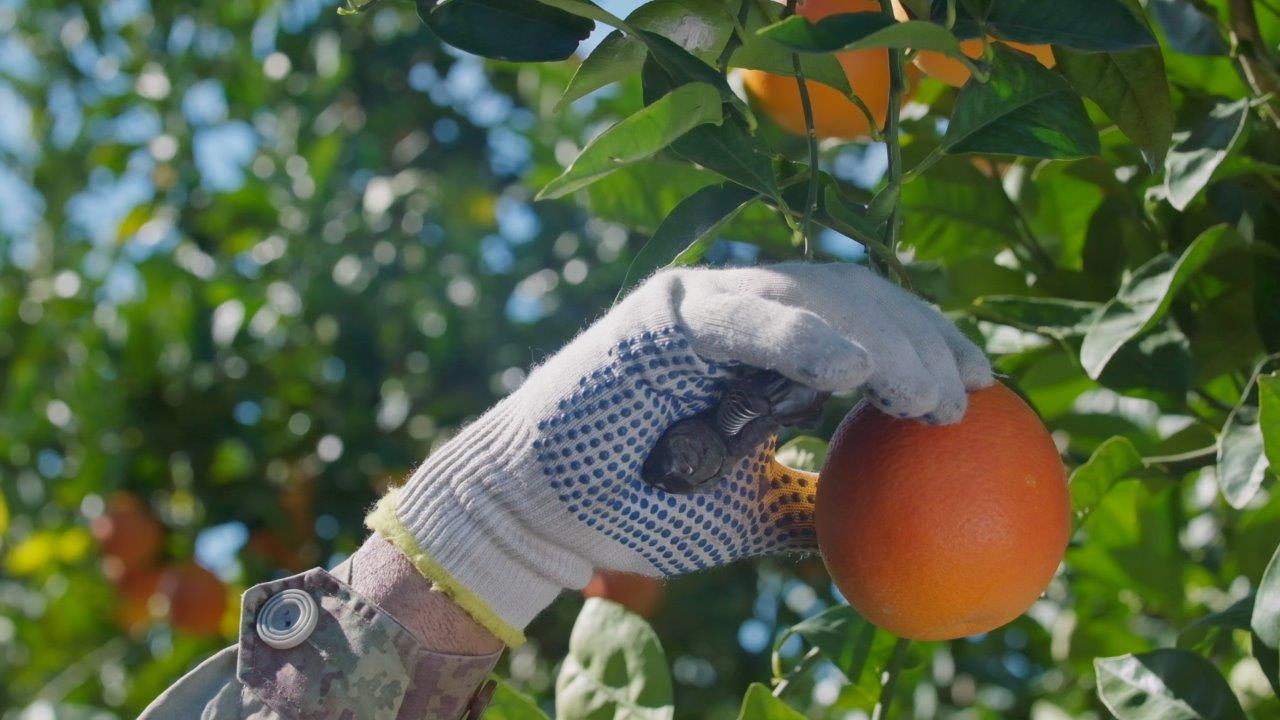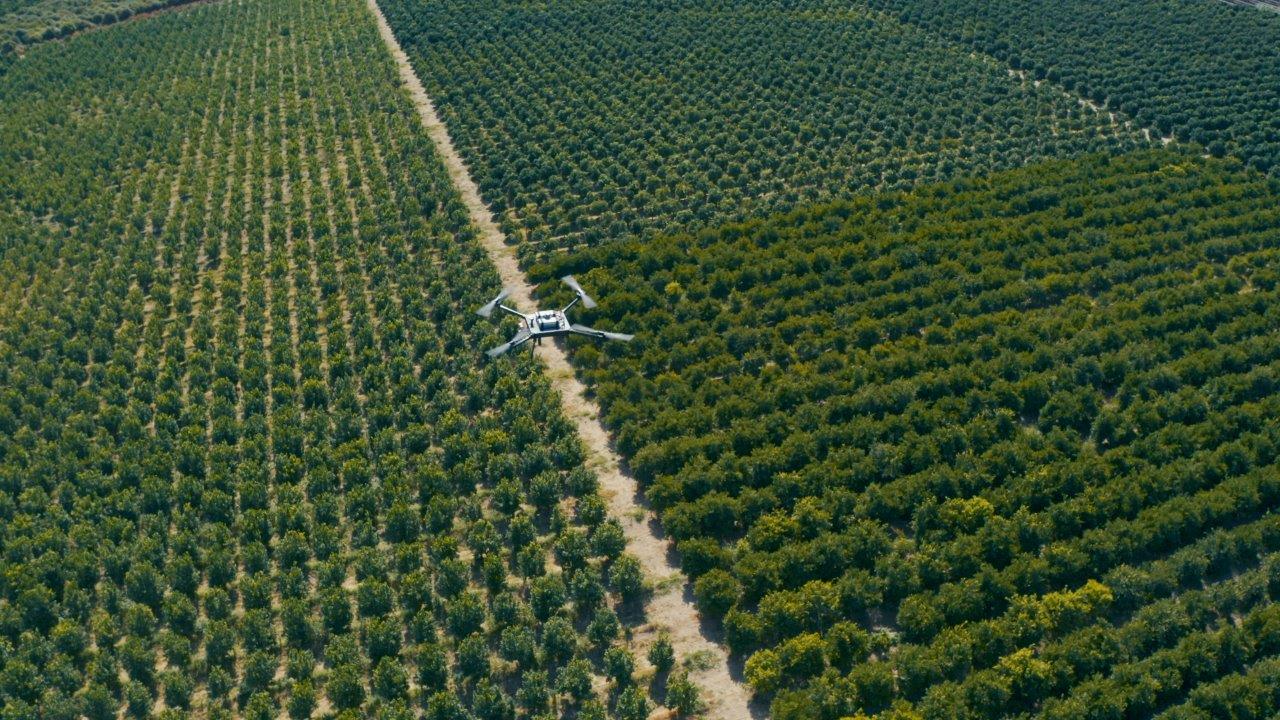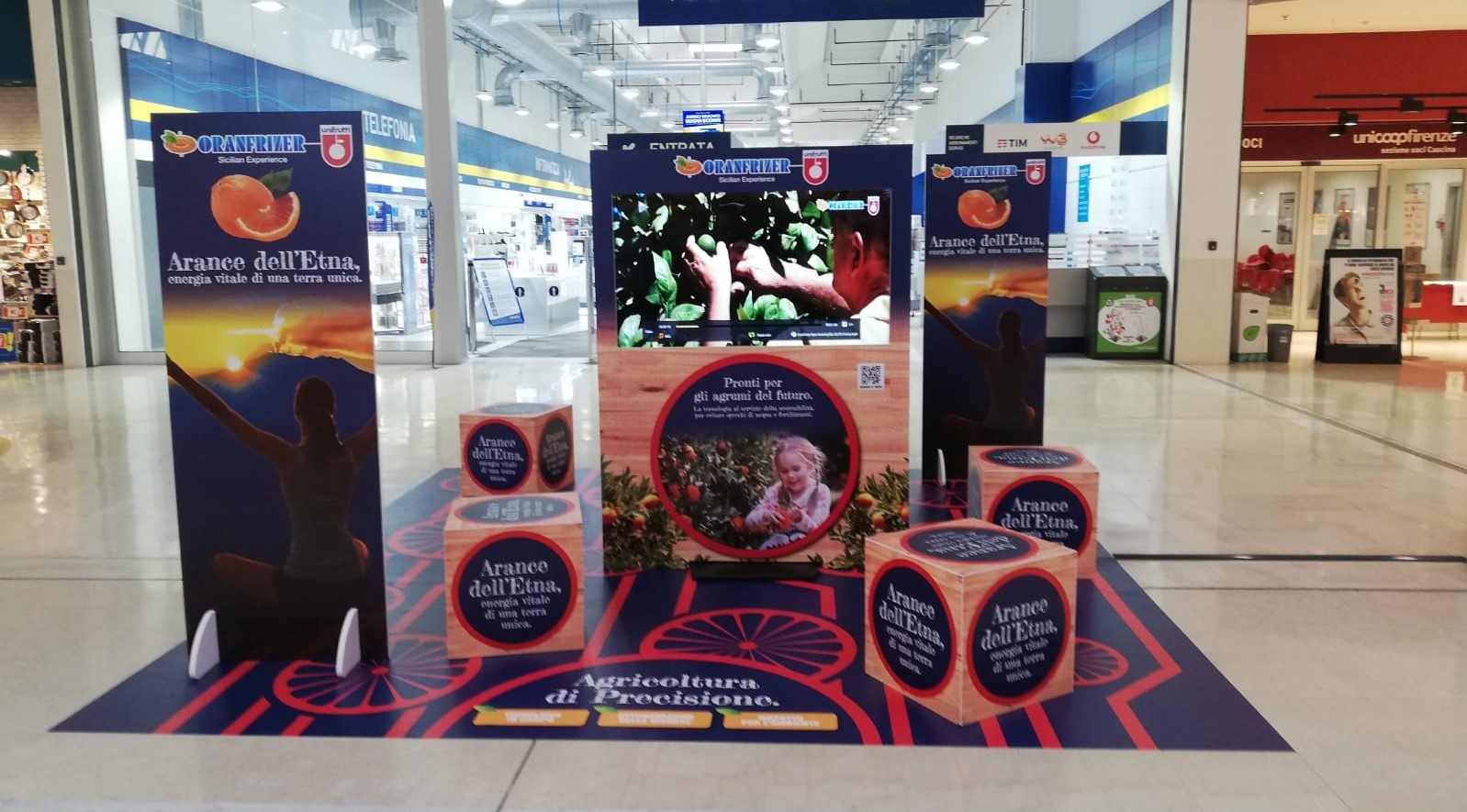Citrus fruits, Sicilian roots feed on innovation
In line with the sustainable development strategies of the Unifrutti Group to which it belongs, Oranfrizer in Sicily is experimenting with new technology aimed at improving the quality of fruit, producing healthier plants, optimising the resources used and respecting the environment.
The process of precision farming begins with the acquisition of data using satellites, drones and field measurements to monitor soil and water requirements, the health of trees, soil, air and leaf moisture, the amount of wind and light, and adverse environmental conditions.
The data collected and processed by specialised software provides useful analyses for agronomists who can intervene in a more meticulous manner to improve the management of citrus groves and the quality of the fruit, optimise the use of water and fertilisers and avoid waste as much as possible.
For many years now, Oranfrizer’s citrus fruits have been completely edible, including the peel, because they are the result of integrated pest management. In the field and after harvesting, the limits imposed by law on the use of pesticides are strictly adhered to, with very low levels of residue on the harvest (below 70% of the limit imposed by law). The level of control will increase with these new precision farming practices.
“In order to continue to shape the future of blood oranges in Sicily,” says Nello Alba, CEO of Oranfrizer, “we want to make responsible choices and take into account the impact that people and production systems have on the environment. Moreover, never before have we seen the consequences of climate change as in recent years, with our citrus groves alternating between long periods of drought and flooding. In order to run large agricultural enterprises, to better manage limited resources and to defend them from unpredictable events, we are testing advanced technological systems that give us useful and immediate information, allowing us to act more carefully to protect the harvest, for the benefit of healthy and safe food, and in a way that respects our planet”.
The tests started by Oranfrizer in 2019 are still ongoing and involve around thirty hectares of crops located on the slopes of the Etna volcano, in the heart of Eastern Sicily. Oranges are one of the main fruits of the Oranfrizer project, especially the red ones. The crops that were tested are: Tarocco Ippolito, Sciara and Scirè blood oranges, Navelina, Navel Powel and Lane Late blonde oranges, as well as lemons, mandarins and pomegranates. The company’s commitment in the field continues along the production process, in the packaging plant in Scordia, in the Plain of Catania, which has been 30% solar-powered since 2017, and changes are also taking place in the packaging, which is progressively changing its appearance, reducing the use of plastic in favour of paper.
The first new products are already on the table, not only with the fruits, but also through the sharing of information and digital videos that have been shared with consumers in recent weeks in the fruit and vegetable departments where Oranfrizer is present with an ever-widening basket of citrus fruits, vegetables and juices. Point-of-sale activities also include the distribution of a themed recipe book to provide tips on the consumption of citrus fruits, a healthy foodstuff recommended in the diet of both adults and children.
Link to the video – https://oranfrizer.it/video/it-IT/308/oranfrizer
Sustainable energy sources as protection from energy volatility
Today, more than ever, the strategy of many companies that, like Oranfrizer, have invested in optimising their resources and in energy from alternative sources is proving to be a successful approach and a distinguishing factor not only in the eyes of the consumer, but also from the point of view of the economic sustainability of the companies operating in the sector.
The direct, albeit partial, control of energy production allows Oranfrizer – whose photovoltaic plant now accounts for 30% of its energy needs – to diversify its energy supply and mitigate the impact of increasingly volatile traditional energy prices. The recent increase in energy costs, which has seen supply prices more than double, may have serious repercussions on the fruit and vegetable ecosystem, affecting production and threatening to hinder its development.






